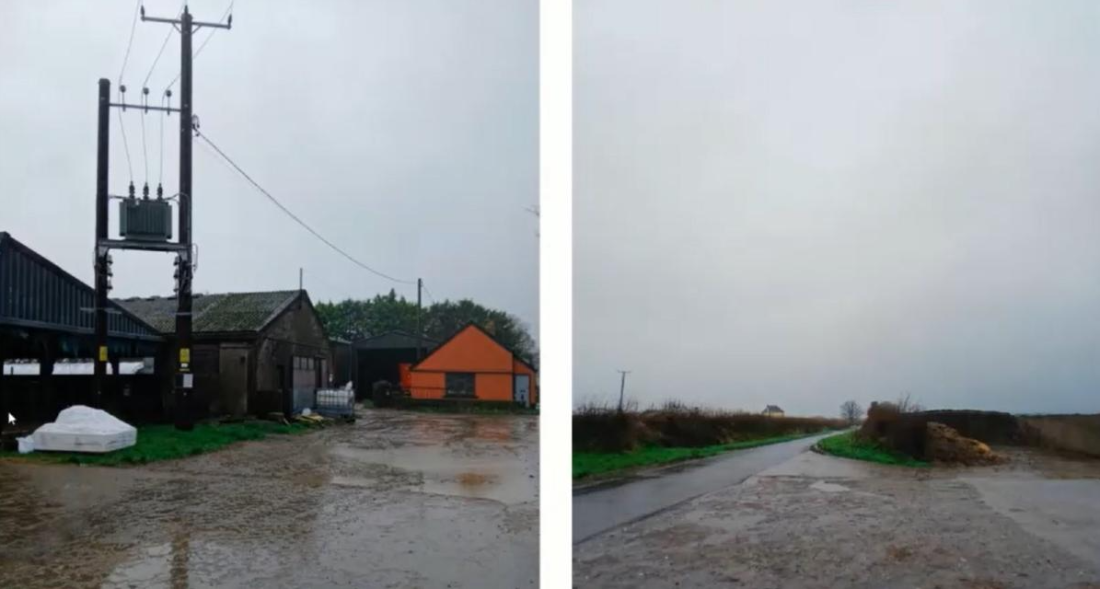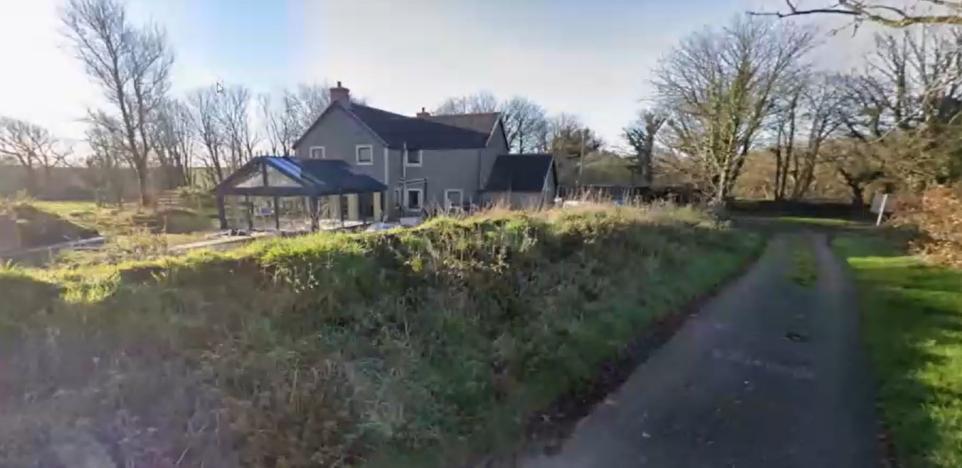Farming
‘False positives’ must be eliminated

New bovine TB tests needed?: Cambridge University has recommended
A NEW study performed by researchers from Cambridge University has recommended that new tests are needed to make vaccination against bovine tuberculosis (bovine TB). The report points out that in order for vaccination to be viable, the number of false positives from these tests must be significantly reduced. The scientists have said the reduction in false positives in cattle is feasible, but that a vaccination programme would be challenging. Despite an intensive, and costly, control program in the United Kingdom, bovine TB persists. Although vaccinating cattle with the human BCG vaccine offers some protection in cattle, doing so is currently illegal within the EU, due to the vaccine’s interference with the skin test used for surveillance.
The Cambridge team worked alongside researchers at the government’s Animal & Plant Health Agency (APHA), to show the importance of specificity – the proportion of uninfected animals that test negative – to making disease control strategies work. The skin test currently in use has a very high estimated specificity of over 99.97%, which means that less than three animals in 10,000 will test falsely positive. However, the test as carried out in Great Britain is thought to have at best an 80% sensitivity – a measure of how many infected animals will correctly test positive – missing around 1 in 5 bovine TB-infected cattle. It is used to determine if animals, herds and countries are officially free of bovine TB.
Vaccinated animals that test positive have to be treated as infected animals. Under European law, if an animal tests positive, it must be slaughtered. The remaining herd is put under movement restrictions and tested repeatedly using both the skin test and post-mortem examinations until it can be shown to be officially clear of infection. Researchers said the duration of movement restrictions is important due to the considerable economic burden they place on farms. Also, the cost to the UK government alone is estimated to amount to half a billion pounds over the last decade; this cost includes visits to farms by veterinarians, tests carried out and compensation for the slaughter of infected animals.
For vaccination to be economically viable and acceptable within the EU, the benefits of vaccination must be great enough to outweigh any increase in testing. A new generation of diagnostic tests, known as ‘Differentiate Vaccinated from Infected Animals’ (DIVA) tests, has opened up the opportunity for the use of BCG within current control programmes. The EU has recently outlined the requirements for changes in legislation to allow cattle vaccination and a recent report from its European Food Safety Authority (EFSA) emphasized the importance of demonstrating that BCG vaccine works, and that DIVA tests can be shown to perform in large-scale field trials.
However, a key factor overlooked in the EU report was that the currently viable DIVA tests have a lower specificity than tuberculin testing; this could lead to vaccinated herds being unable to escape restrictions once a single test-positive animal has been detected, as the more times the herd is tested, the more likely the test is to record a false positive. In their study, the researchers from Cambridge and APHA used herd level models to show that the level of infection can be reduced in vaccinated herds even when DIVA sensitivity is lower than tuberculin skin testing.
However, in order to see this benefit of vaccination over 99.85% of uninfected animals will need to test negative in the DIVA test. This improved accuracy will be necessary to avoid increasing the duration of breakdowns and the number of animals condemned. Using data from previous tests on cattle, the researchers said this level of ‘specificity’ is achievable, though they said there will be challenges associated with improving accuracy. The researchers said, “Currently, there is no gold standard test to diagnose TB in cattle. Cattle that test positive are slaughtered immediately and therefore have rarely developed any physical signs – in fact, only around a half of animals examined post-mortem show physical signs of infection even if they are, indeed, infected.”
Dr Andrew Conlan from the Department of Veterinary Medicine at the University of Cambridge explained “In order for vaccination to be viable, we will need a DIVA test that has extremely high specificity. If the specificity is not good enough, the test will find false positives, leading to restrictions being put in place and a significant financial burden for the farmer. “But validating a test that has a very high specificity will in itself be an enormous challenge. We would potentially need to vaccinate, test and kill a large number of animals in order to be confident the test is accurate. This would be very expensive.”
Business
Redevelopment plans at Clunderwen dairy farm approved

PLANS for new livestock buildings at a Pembrokeshire dairy farm, aimed at “improved animal husbandry” will not lead to an increase in herd size, councillors heard.
In an application recommended for approval at the February meeting of Pembrokeshire County Council’s planning committee, Mr Roblin of Clynderwen Farm, Clunderwen, sought permission for two livestock building at the 210-hectare dairy farm of 280 cows and 235 head of young stock.
A report for members said each livestock accommodation building would have a length of 77 m, a width of 33m, an eaves height of 3.6m and a ridge height of 8.9m.
Both buildings would be parallel to each other and would cover a footprint of 5,082sqm (2,541sqm each). The proposal includes a total of 308 cubicles, loafing and feed areas, with a central feed passage in the middle.
It said the buildings at the site, some 200 metres from the nearby Redhill school and just over a kilometre from Clunderwen, would sit a little lower than those already on site, and the proposals would not lead to any increase in herd size.
Speaking at the meeting, agent Gethin Beynon said the scheme would lead to “improved animal husbandry to serve the existing milking herd and to support the next farming generation”.
He told members the application was accompanied by environmental enhancements and screening, with no objections from members of the public or any statutory bodies.
Mr Beynon went on to say the herd was currently housed in historic farm site buildings that “fall short of current standards,” with a farm move towards Holstein cattle which need more space.
Read More:
- Police investigating report of livestock worrying after 11 sheep found dead
- Four arrested in major armed police operation in Pembrokeshire town
- Climber died and two others injured in incident on Pembrokeshire coast
“It will improve animal husbandry and efficiencies in what is currently a challenging market,” he concluded.
Approval was moved by Cllr Alan Dennison, seconded by Cllr Brian Hall, and unanimously backed by committee members.
Farming
Housing restriction at Hayscastle farm site removed

A CALL to remove an agriculture condition imposed back in 1989 on a Pembrokeshire farm site which is said to be “economically unviable” as a farm has been given the go-ahead.
In an application recommended for approval at the February meeting of Pembrokeshire County Council’s planning committee, Rosalyn Jayne Evans sought permission for the removal of an agricultural worker-only condition for residence at Upper Hayscastle Farm, Hayscastle, near Haverfordwest.
The original condition was imposed as part of a 1989-approved planning application.
A report for members said the land, some 26.3 hectares,” is, following independent valuation, not considered to be an ‘economically viable unit in its own right’.”
“The report author contends this was also likely to have been the case at the time when [the 1988 scheme] was originally granted as no housing for livestock, crop or slurry storage was provided as part of the original consent or since the approval.
“The report also states that whilst the land is productive for uses such as grazing and crops, the lack of building(s) would restrict the economic viability of Dolfach as a separate agricultural holding.
“If investment were to now be made at the holding in relation to dairy or beef farming, the report contends that this would be economically unviable, due to the holding at Dolfach being unable to support a sufficient number of animals to produce the financial return required to sustain the business. The report also highlights that building(s) for livestock would be essential in relation to the prevalence of Bovine TB in the locality.”
It added: “It is considered that the information provided by JJ Morris is sufficient to indicate that the scale of the land holding and the lack of infrastructure would make a farming enterprise at the site an economically unviable proposition.”
It recommended “the existing Section 52 agreement be discharged to remove the requirement for the dwelling to be tied to the land in agriculture at Upper Hayscastle Farm and for the dwelling to be occupied by a person solely or mainly employed before retirement in agriculture”.
The recommendation of approval was moved by Cllr Brian Hall and unanimously backed by committee members.
Farming
Performance recording transforms hill flock at Llysfasi college farm

A WELSH college farm is successfully lambing triplet-bearing ewes outdoors on exposed hill ground after introducing genetic performance recording to strengthen maternal traits and flock resilience.
At Coleg Cambria Llysfasi, near Ruthin, a flock of 120 pure Welsh Mountain ewes grazes land rising between 1,000 and 1,300 feet above sea level, where winter conditions can be harsh and only the hardiest sheep thrive.
Since joining the Farming Connect Welsh Sheep Genetics Programme in 2023, the farm has used Estimated Breeding Values (EBVs) to target improvements in maternal ability, growth rates and overall performance. Although genetic gains are often gradual, staff say results are already clear just three years into the scheme.
Historically, ewes carrying triplets were lambed indoors, adding labour and cost. Now, improved maternal strength means they can lamb outside with minimal intervention.

“The ewes are holding their body condition better, we haven’t had any problems lambing them outdoors and they keep their lambs very well,” said shepherd Alun Jones. “We’re seeing fewer losses and far less hands-on work. In the 2025 season we only assisted two ewes out of 120.”
The wider system runs 600 ewes, including Welsh Mountains crossed with Abertex to produce mule ewe lambs, and mules crossed with Beltex or Texel rams for finishing lamb production. Plans to phase out the Welsh Mountain breed were reversed after recognising its value for hardiness and mothering ability in upland conditions.
Performance recording began in autumn 2023 with tissue samples, body condition scoring and regular weighing to create a reliable data baseline.
“Before, we were judging by eye,” said Mr Jones. “Now we’ve got hard evidence to guide decisions.”
By identifying and removing the bottom 20 per cent of performers, the flock’s overall index has risen from £13 to £16.24 — a significant lift in commercial potential.
Lambs are currently creep-fed and sold from November to January at 38–42kg liveweight, with a longer-term aim to finish earlier and reduce concentrate use.
Farm manager Dewi Jones said the data has also changed how they buy rams.
“When you’re at a sale and you’ve got the indexes in front of you, you can draw a red line through the animals that don’t stack up. Type still matters, but figures matter just as much. Data gives you confidence in your choices.”
Some home-bred ram lambs are now matching the performance of sale-topping sires, creating opportunities to retain or market their own breeding stock.
Mr Jones believes the sheep sector could benefit from taking a more data-driven approach, similar to dairying.
“If we don’t measure, we can’t improve. Recording takes time, but the rewards are there. It’s about working smarter and building a more resilient flock for the future.”
Shepherd Alun Jones with Welsh Mountain ewes at Llysfasi.
Performance recording and weighing form a key part of the improvement programme.
-

 Health2 days ago
Health2 days agoHealth Board to decide future of nine key services at two-day meeting
-

 Business4 days ago
Business4 days agoComputer Solutions Wales under fire from customers
-

 Business6 days ago
Business6 days agoMinimum alcohol price to rise by 30 per cent as retailers warn of border impact
-

 Charity4 days ago
Charity4 days agoWelsh patient voices help shape new UK-wide online kidney forum
-

 Community3 days ago
Community3 days agoFacebook ‘news’ site targeting Herald editor collapses after community backlash
-

 Crime6 days ago
Crime6 days agoPembroke Dock man admits threatening to hack woman’s head off with sword
-

 Community4 days ago
Community4 days agoCalls for traffic calming in Neyland after car hits house
-

 Business6 days ago
Business6 days agoWiston Pembrokeshire Airbnb garage approved by planners
























